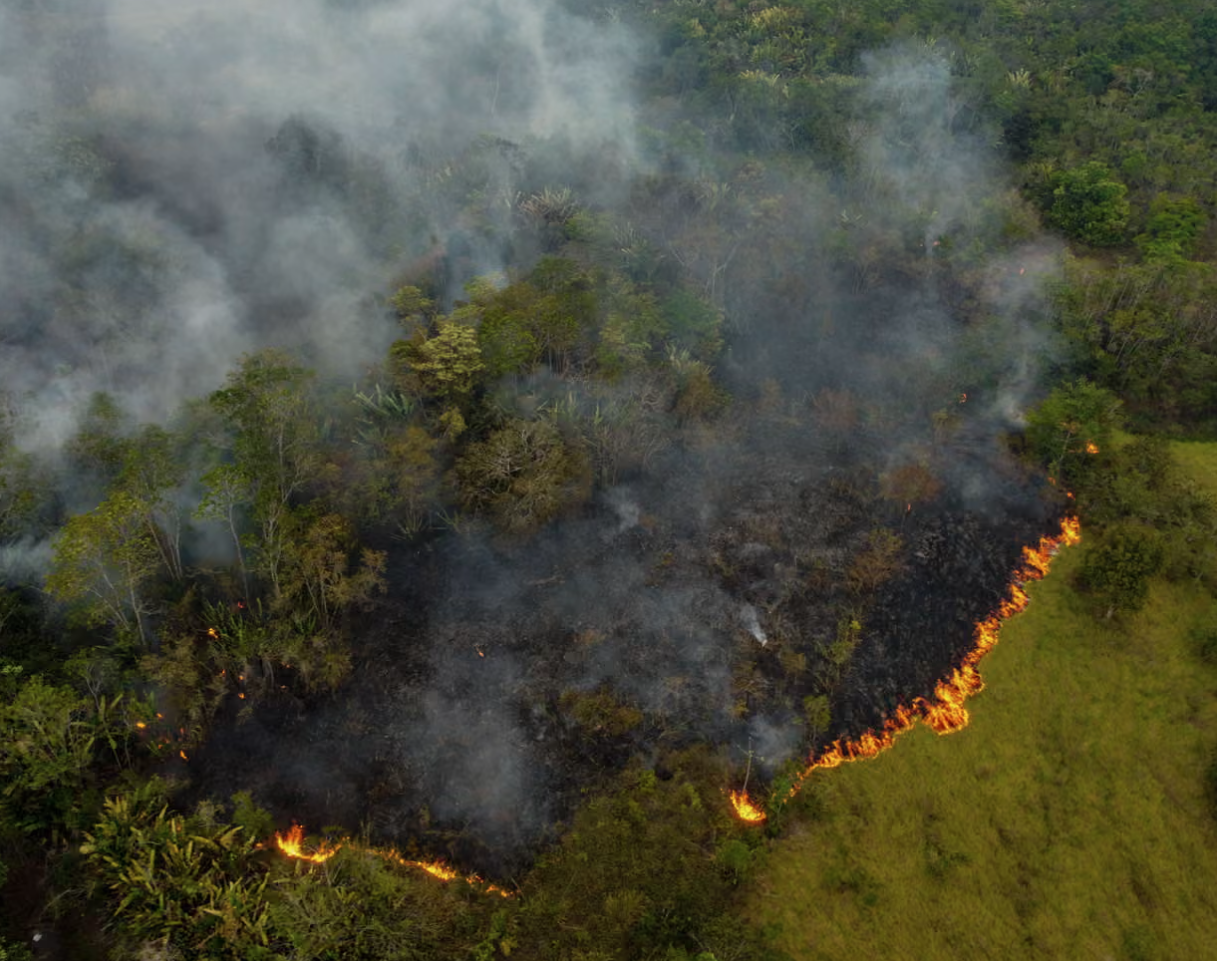
Since governments and corporate leaders pledged to end deforestation by 2030 at Cop26, the situation has worsened, the analysis by Climate Focus reveals. Forest loss has accelerated, driven by public subsidies for livestock, logging, monoculture farming, and other extractive industries.
In 2024 alone, 8.1 million hectares of forest — roughly half the size of England — were cleared through fire and felling, surpassing the levels recorded when the deforestation pact was first signed. The world is now 63% off track from achieving the 2030 goal, warns the Forest Declaration Assessment, an annual review compiled by civil society and research groups.
"Each year, the gap between promises and reality widens, with devastating consequences for people, the climate and our economies," said Erin Matson, lead author at Climate Focus. "Forests are non-negotiable infrastructure for a livable planet. Continued inaction puts our shared prosperity at risk."
A deep financial imbalance
Behind the worsening trend lies a stark financial disparity. Agricultural industries — responsible for 85% of global forest loss over the past decade — receive an estimated $409 billion (£307 billion) annually in subsidies. In contrast, only $5.9 billion in public international finance is directed each year toward forest protection and restoration.
"Efforts to protect forests will never succeed while our economic systems keep rewarding quick profits from destruction," said Franziska Haupt, partner at Climate Focus. "What's needed is bold, binding reform to realign the global economy with conservation, not exploitation."
Amazon fires and the carbon toll
The report also highlights the alarming resurgence of fires in the Amazon, where record droughts have turned vast stretches of rainforest into a tinderbox. Many blazes were deliberately set to clear land, then spread uncontrollably.
In 2024, carbon dioxide emissions from Amazon fires were seven times higher than the average of the previous two years — exceeding Germany's total annual greenhouse gas output. Scientists warn the region is nearing a tipping point where it could shift permanently from rainforest to savanna.
Banks profiting from deforestation
Private financial institutions are also under scrutiny. A separate investigation by Global Witness found that banks have earned $26 billion since 2015 from financing companies linked to deforestation — roughly $7 million every day since the Paris Agreement was signed.
US giants Vanguard, JPMorgan Chase, and BlackRock topped the global list, with profits of $5.4 billion. European banks, led by BNP Paribas and Rabobank, earned $3.5 billion, while UK firms including HSBC, Aberdeen Group, and Schroders gained $1.2 billion. Chinese institutions matched that figure, despite their government's supposed "green finance" policies.
"We are watching major banks bankroll the destruction of the world's rainforests — and profit from the ashes," said Alexandria Reid, forests lead at Global Witness. "As long as tearing down forests remains more profitable than protecting them, the 2030 zero-deforestation target will remain out of reach."
Hope for change at Cop30
Attention now turns to Cop30, due to be held next month in Belém, Brazil — the first climate summit hosted in the Amazon. Brazil plans to propose a new financing model, the Tropical Forests Forever Facility (TFFF), designed to raise $125 billion to reward countries that protect their standing forests.
"The overall picture is bleak, but the future of forests doesn't have to be," Matson said. "Innovative finance tools like the TFFF could spark real transformation — if world leaders deliver on their promises."
Financial institutions are expected to purchase the majority of the proposed bonds, potentially offering them a way to counter growing criticism over their role in deforestation.
However, Elisabeth Hoch of Climate & Company, another contributor to the assessment, warned that only 40% of financial institutions currently have any deforestation policy, despite forests providing an estimated $150 trillion in economic value.
"I want companies to leave Cop30 thinking: ‘If I don't act now, I'll be left behind,'" Hoch said. "The summit can build momentum — but only if the financial world finally finds the courage to change."